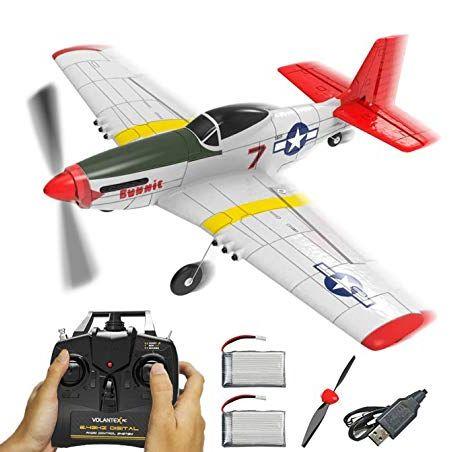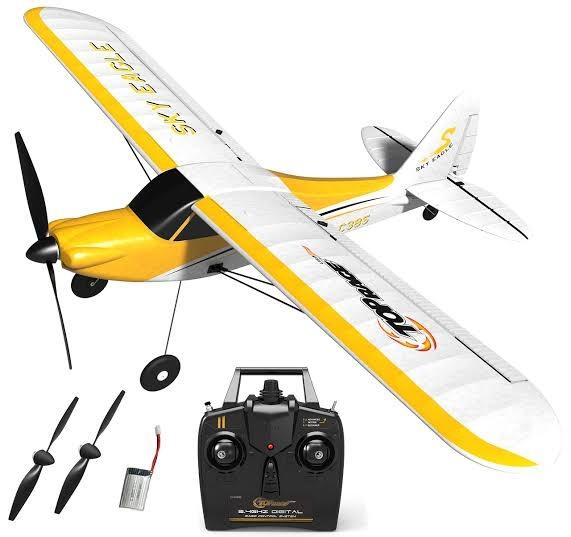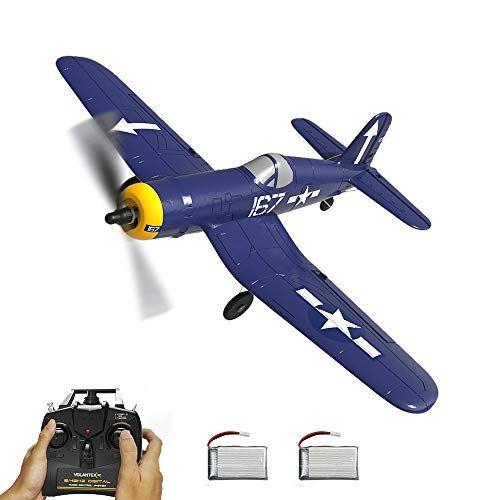Small Remote Control Airplanes: The Latest in Aviation Technology
Small remote control airplanes have become increasingly popular in recent years due to their unique appeal to hobbyists and aviation enthusiasts. These planes come in different types, such as gliders, jets, and propeller planes and can be used for various purposes, including aerial photography, military training, and scientific research. With advancements in technology and engineering, small RC planes have become more powerful, efficient, and precise. Lightweight materials like carbon fiber and foam are used in their construction to facilitate their aerodynamics. Furthermore, these airplanes are relatively inexpensive compared to full-size planes, making them accessible to hobbyists who cannot afford a larger aircraft.
Advancements in Design and Technology.
Technology has made small remote control airplanes more powerful and efficient, with longer flight times and greater maneuverability. Advancements in aerodynamics, engineering, and design have resulted in higher speeds and more precision in handling. These planes are built with lightweight materials such as carbon fiber and foam, which allow for better aerodynamics. Additionally, manufacturers have produced efficient and powerful engines that allow RC planes to fly for longer periods. Some products like RC airplane kits or plans to build remote planes are available online.

What materials are small remote control airplanes typically built with?
Small remote control airplanes are typically built using materials such as foam, balsa wood, plastic, carbon fiber, and fiberglass.
Benefits of Owning a Small Remote Control Airplane
Owning a small remote control airplane has numerous benefits, such as cost-effectiveness, improving mental health, and new career opportunities in fields such as aviation and engineering. Small RC planes are not as expensive as full-size planes, eliminating the need for an expensive hangar or pilot’s license. Flying RC planes can provide multiple mental health benefits, including stress relief and increased focus. Owning and operating an RC plane can lead to a career in aviation and engineering.
Additionally, small remote control airplanes provide a fun and engaging experience for users. It allows individuals to fly anywhere and as long as they want without the need for extensive training. Hobbyists can find various products and forums on websites, which focus solely on different aspects of building and flying RC planes. Check out some popular brands for small RC airplanes or explore websites like RC Groups to connect with other enthusiasts.

What are some popular brands for small remote control airplanes?
Some popular brands for small remote control airplanes are E-flite, HobbyZone, and ParkZone.
Stay Safe: Rules and Regulations for Flying RC Planes
There are safety concerns and regulations that users must be aware of when operating small remote control airplanes. These include:
- Dangers of flying RC planes near populated areas:
- RC planes can cause significant damage to property and individuals if flown near populated areas such as parks, airports or residential neighborhoods.
- Rules and regulations set by the Federal Aviation Administration (FAA):
- The FAA has published regulations regarding RC planes such as keeping them within visual range and flying below 400 feet. When in doubt, it’s always best to consult FAA.gov for latest information and regulations.
- Importance of being responsible and respectful when flying RC planes:
- Pilots must be responsible and respectful when flying RC planes to avoid causing injury to people or property.
- Ensuring proper safety equipment and training is always wise when flying RC planes
Users can find additional information on various websites and forums such as the Academy of Model Aeronautics (AMA) and Flite Test, which provide useful guidance on rules and safety measures.

What are the rules and regulations set by the Federal Aviation Administration for operating small remote control airplanes?
The Federal Aviation Administration sets rules for operating small remote control airplanes, including registering with the FAA, flying under 400 feet, avoiding other aircraft, and keeping the drone in sight.
Flying small remote control airplanes is not only a thrilling activity but also a highly social one. It brings together individuals with similar interests, providing a platform for them to share their experiences and knowledge. Participating in group meets and joining online communities are excellent ways of socializing with other enthusiasts. It can be an exciting opportunity to learn more about the newest developments in RC airplane technologies and to exchange tips and advice. Many online forums host discussions dedicated to a diverse range of topics, including airplane plans, electronic components, construction techniques, and aerial photography. Knowing that you’re part of a larger community of enthusiasts who share your passion can help bring a strong sense of belonging and purpose.
Furthermore, small remote control airplanes can act as an entry point into the aviation, science, and engineering fields. It’s possible to acquire some foundational knowledge of aircraft and technical systems that can be applied to real-world careers. On the other hand, for people who don’t have an interest in pursuing a career in aviation or engineering, flying remote control airplanes can still be an enjoyable and rewarding hobby that fosters intellectual curiosity and promotes learning. It can offer a sense of accomplishment as users build their planes, learn how to fly them, and accomplish aerial stunts.
Overall, small remote control airplanes offer a diversity of benefits to their hobbyists, from stress relief to community building, all while offering the excitement and freedom of flying. Do your research, learn the regulations, and join the community of enthusiasts who share the passion for small RC planes. Get started today and be inspired!
Conclusion:
In summary, small remote control airplanes represent a fascinating technology that offers an exciting opportunity to unleash your creativity and imagination, learn new skills, and become part of a community. While enjoying the hobby and all the benefits that come with it, always abide by safety measures and regulations to protect yourself, others, and the environment. Flying small remote control airplanes is a rewarding experience that can bring joy, relaxation, and a deep sense of satisfaction.



